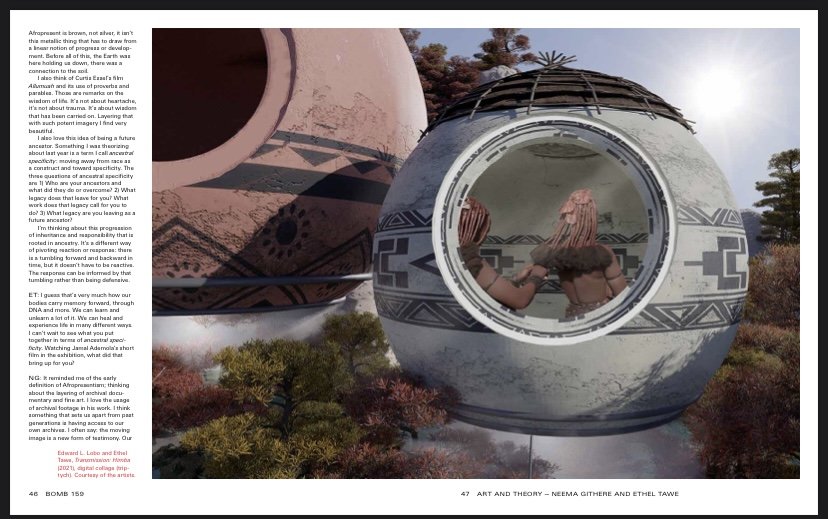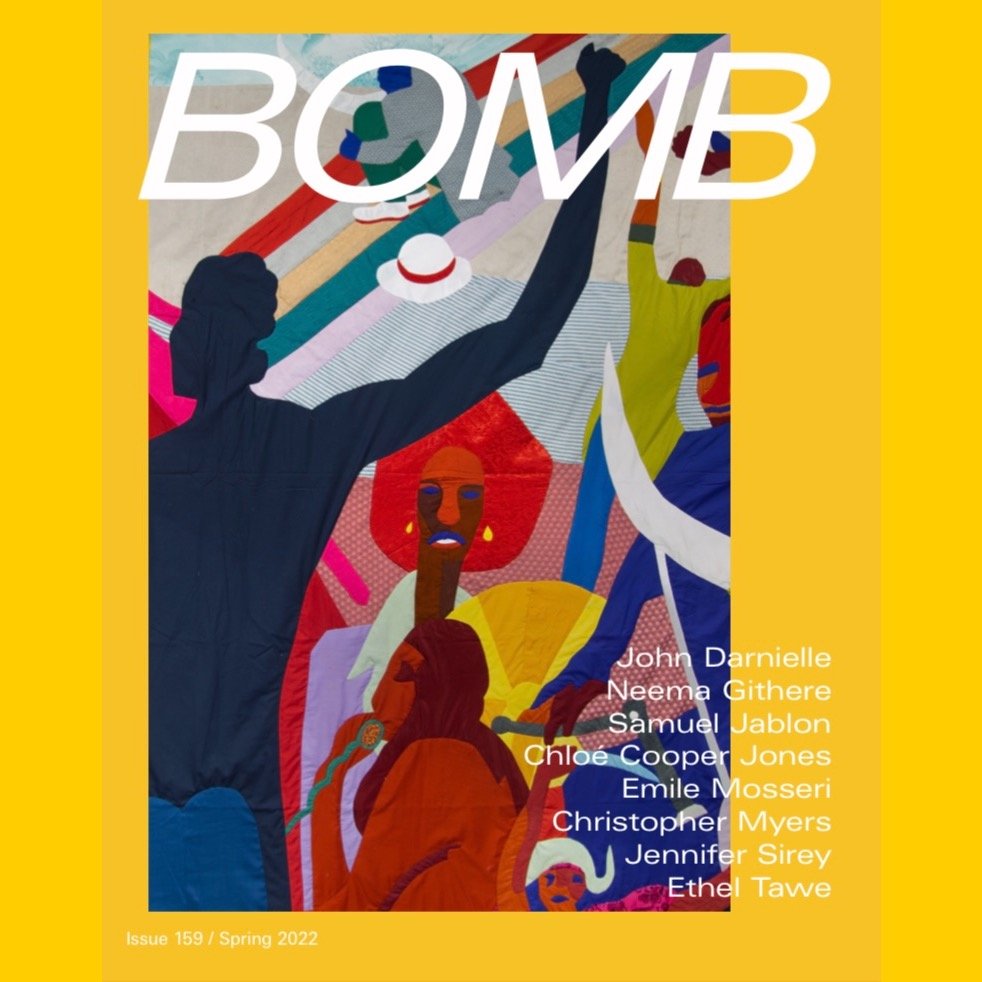“My earliest definition for Afropresentism was that it was a genre fusing archival, documentary, and fine arts through new media in the expression of an Afrofuturist lived reality. That was in 2017, when I was still thinking about it being an aesthetic practice and a genre in that sense.
It’s evolved the more I’ve gotten into embodied practice, thinking beyond genre, beyond conventional art: What does it mean to be an African person who has survived until this point—that has survived centuries of genocide and erasure and colonization, to still be here now? What are we doing with that legacy right now? And time is essential, it’s a core part of that.”
— Neema Githere, “On Afropresentism”




“Ethel Tawe: You are giving language to what many of us are feeling about navigating the internet as artists, and as Black and African people. Could you share what brought you to guerrilla theorizing and genre building?
Neema Githere: I was drawn to guerrilla theory out of a fatigue of not seeing the truths I experience being represented—specifically in the academy and in more formal institutions. I’m somebody who came of age on the internet, and I’ve been very immersed in that world and the kinds of emergent cultural production that happens there. Guerrilla theory is a fugitive of all the institutions that uphold themselves as beacons of thought production.
ET: Guerrilla theory puts an emphasis on oral history and nonwritten forms of documentation, and preserves history that way. Something I like to think about is how we’re holding memory in our bodies through music, dance, and other physical ways through which we carry history forward.
NG: As an African, I feel the pain of our history being quite literally burned, erased, distorted, and weaponized against us. We are not able to rely on conventional archives. We don’t have books from the 1300s written by us to tell stories of how we were living since time immemorial. But like you said, we do have oral histories and our bodies are repositories. We still store the memory within our flesh. So a big part of my practice is just that: embodiment.”
The full interview is available in print and online.
